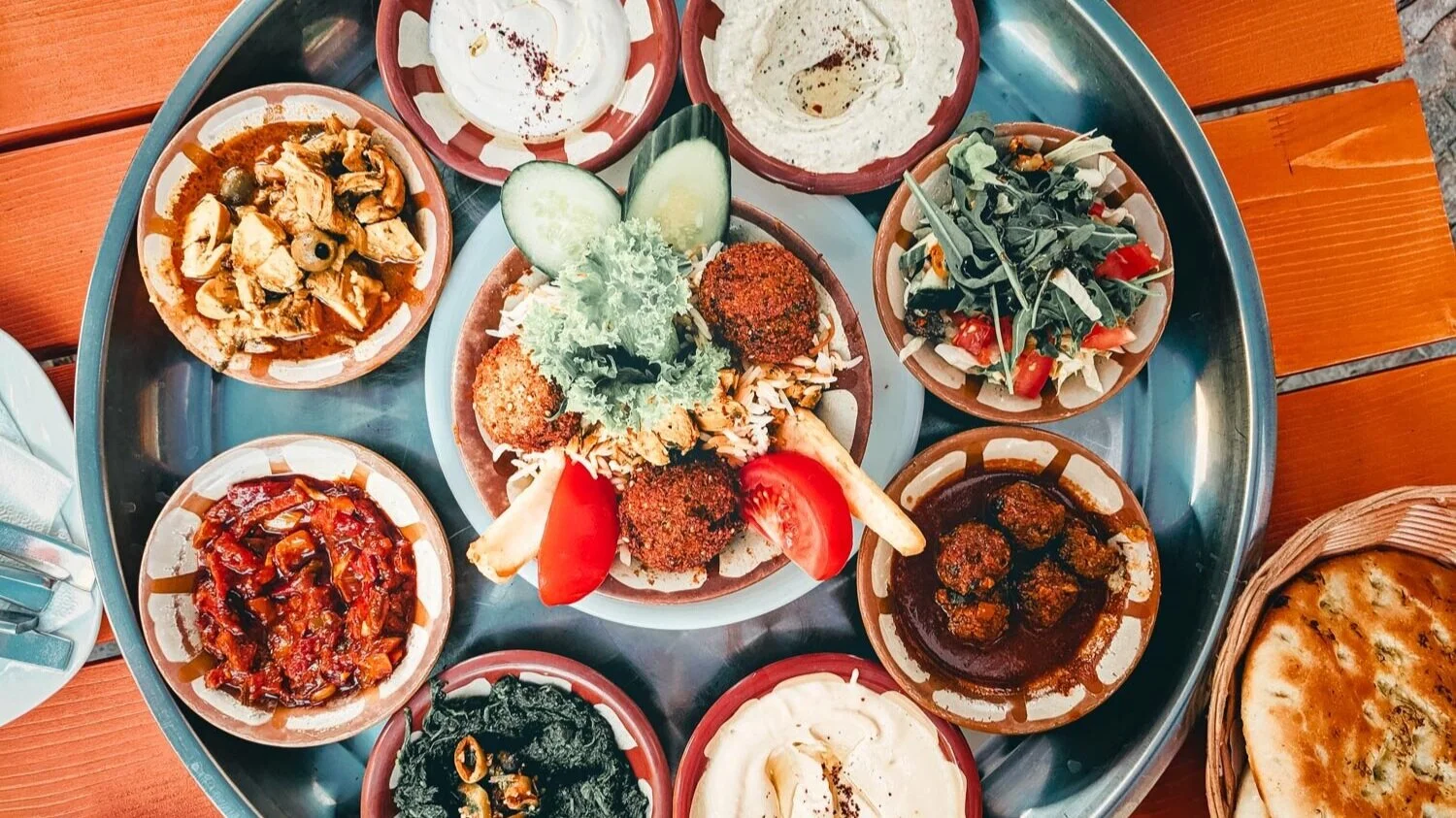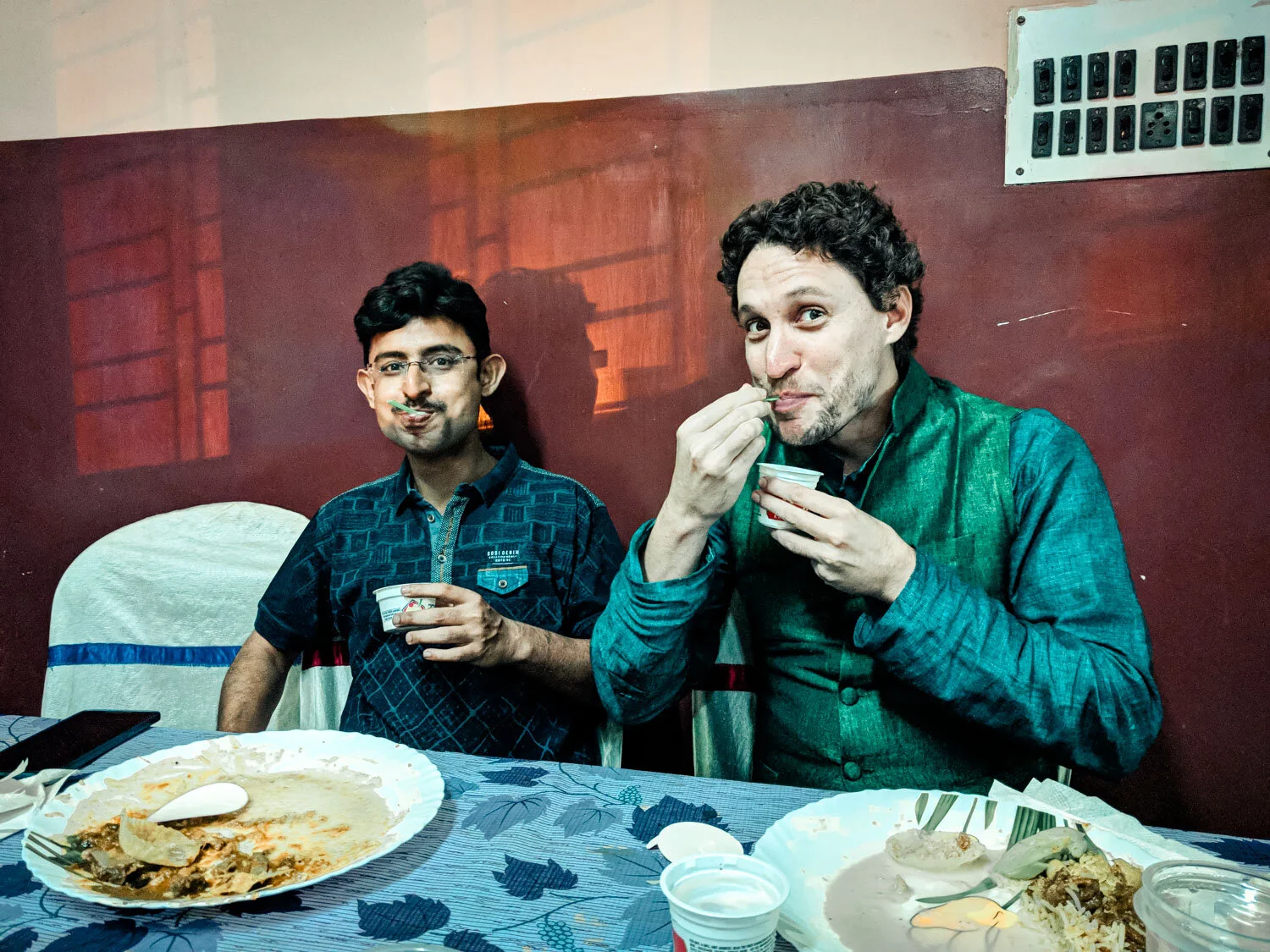Why We NEVER Decline an Offer to Share Food
Food is one of the most ancient and instinctual bonding mechanisms possible. Think of our ancient ancestors sharing their food, and how meaningful that simple act would have been in a time when food was so much scarcer, and took so much more work to acquire. The act of sharing food is an act of giving another person life and sustenance, and a way of demonstrating community and inclusiveness.
I think this symbolic meaning of sharing food is deeply ingrained in all of us instinctively, and that’s why so many cultures have traditions and customs regarding meals and feeding guests.
This is why we’ll (almost*) never refuse to share food if someone offers. When we can see that it’s a genuine hardship to serve us, we’ll eat as little as we politely can -- but we still accept the offer. Again, I believe that rejecting this fundamental and instinctual act of community and acceptance runs much deeper than simply the surface gesture of turning down the offer of a snack.
(As a side note, if you encounter one of these cases of genuine hardship, we’d like to encourage you to give back in whatever way you can. Probably not by directly offering money, but maybe by returning the favor and extending an invitation to a later meal at a restaurant. If you’ve been invited to share in a later meal, bring a reasonably generous gift with you. Things like that.)
We were invited to a Bengali wedding while in Kolkata. An amazing experience!
Now, back to the meaning of sharing food. By refusing, not only are you rejecting this deep-rooted fundamental offer of life and community. On top of that, there’s an added layer of implying that another culture’s food isn’t “good enough.” Even if you don’t intend it that way, there’s the risk of coming off negatively.
We’ve seen so many little moments of judgment as we travel; tourists making off-handed comments about the cutlery being dirty or the tablecloth being stained. The worst, I think, is the exaggeratedly disbelieving, “Really?! You actually eat chicken feet?!?!” (Or whatever else.) You hear the judgment and privilege implied in that, don’t you? The “wow, I can’t believe that these people really eat something that’s so obviously not good enough to be eaten.”
And it’s not just judgment and privilege; it’s also showing off one’s ignorance. Until you’ve tried chicken feet, or crickets, or guinea pig, or whatever “weird and gross” food is consumed locally, how would you even know if you’re missing out? I mean, when you think about it, cheese is pretty “weird and gross” (a different species’ lactation fluids that have been squeezed out and then left to coagulate and change flavors due to bacterial contamination) but tons of Westerners consume it every day.
By graciously accepting an invitation, you’re implicitly acknowledging the other culture and its food as being good enough. It’s a way of acknowledging another culture and its people as equal, through the simple act of accepting and sharing food.
*None of this applies, of course, when the offer isn’t genuine. If someone is just offering us food or drinks as an attempt to lure or pressure us into buying something, for example, the fundamental meaning of sharing food is twisted and we don’t feel any pressure to accept.

